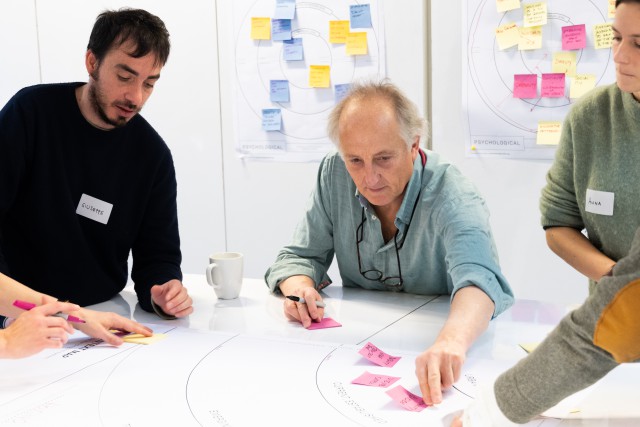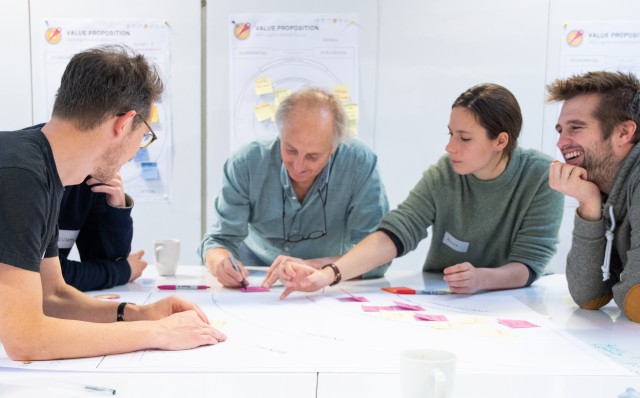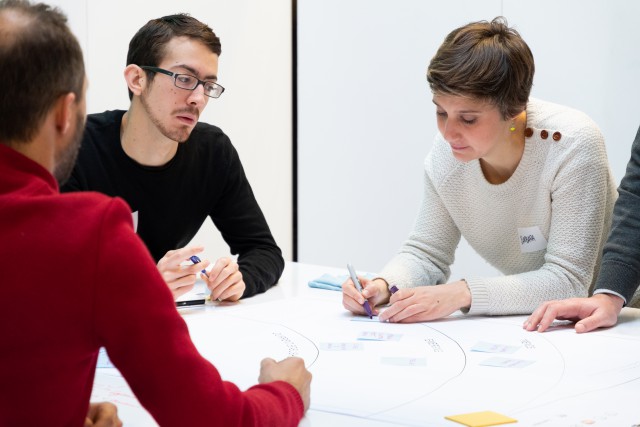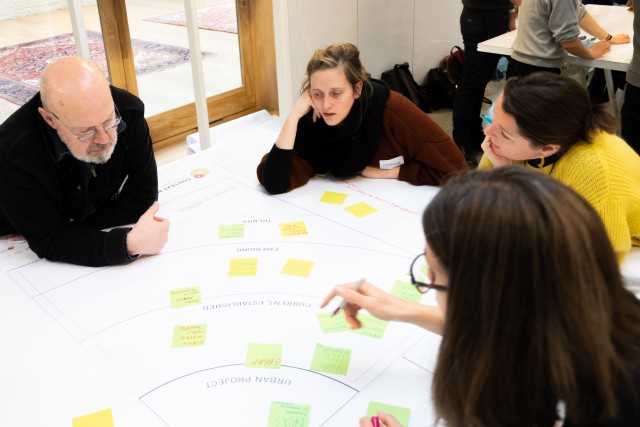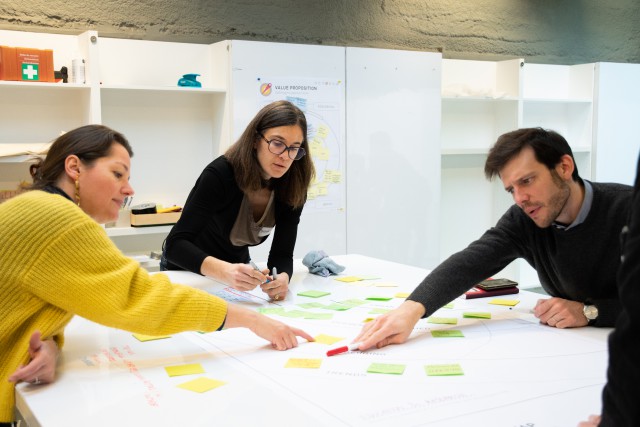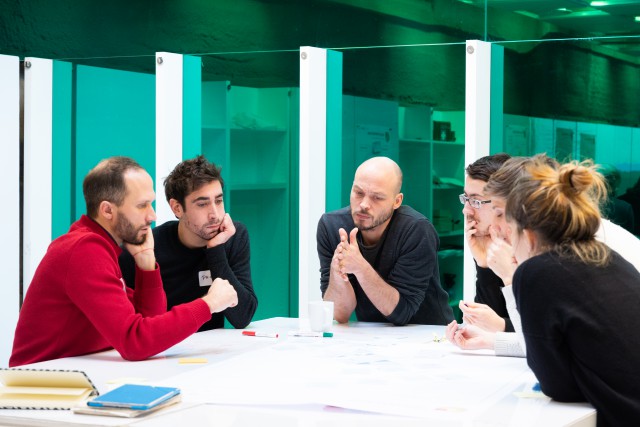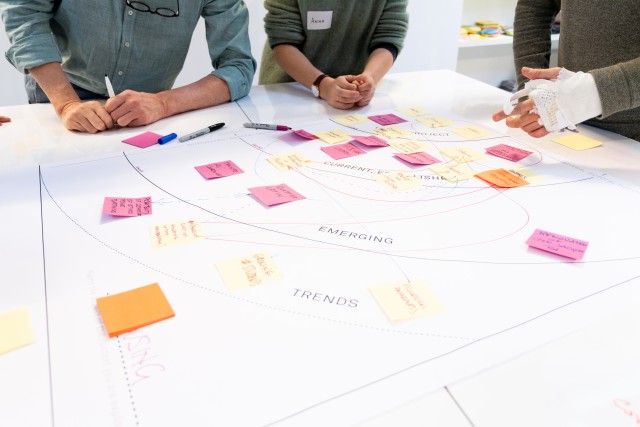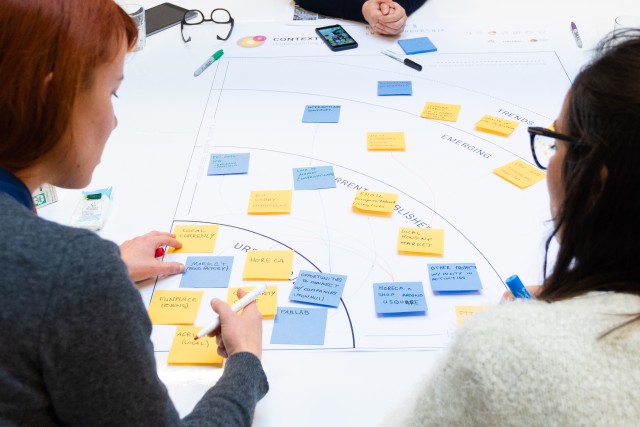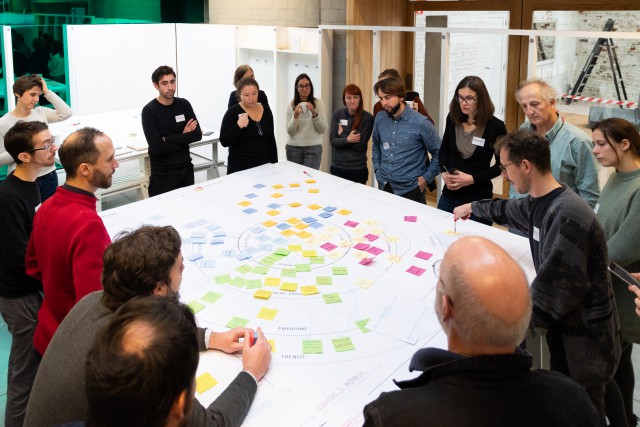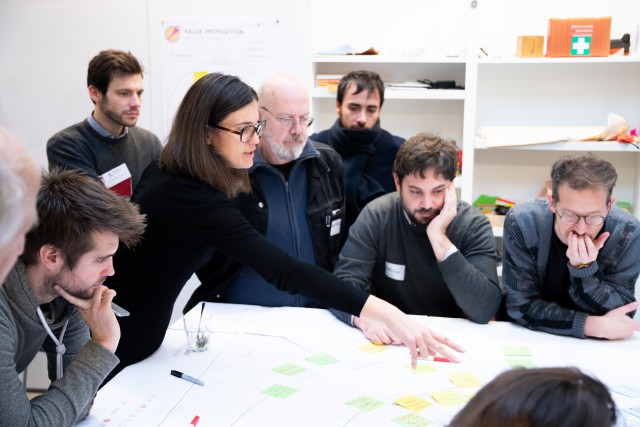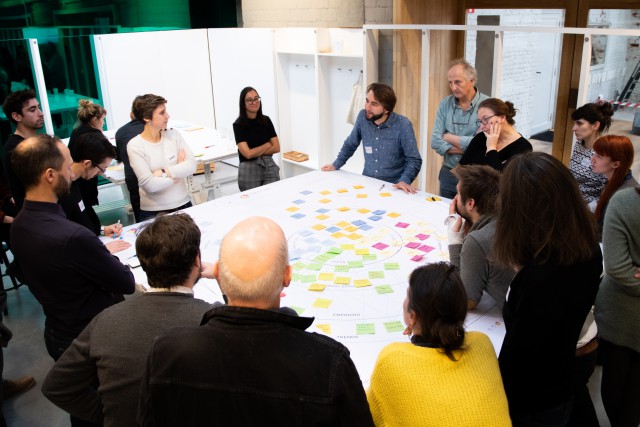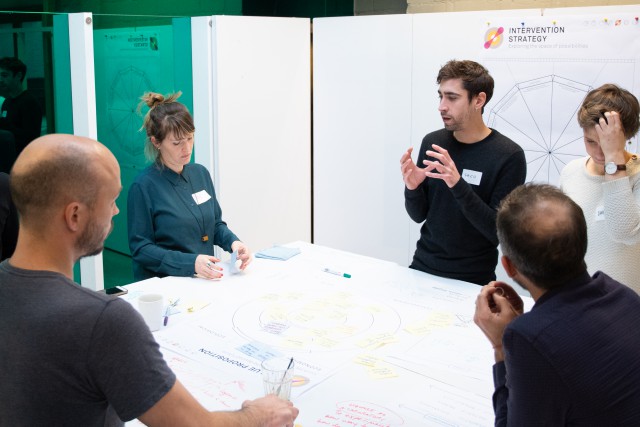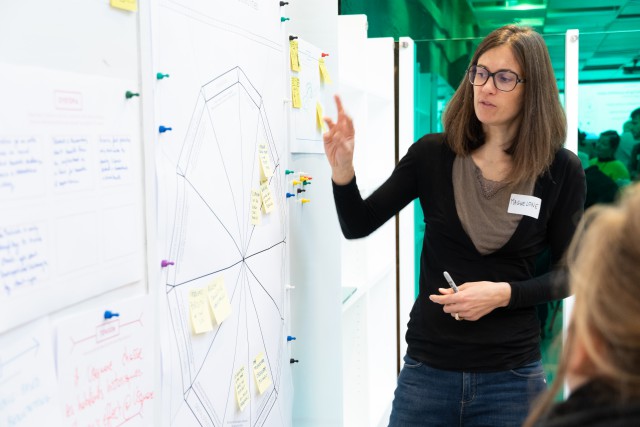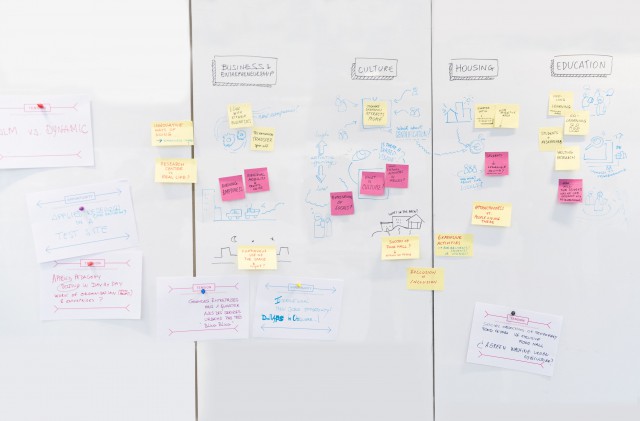Designing the Urban Project’s Ecosystem: The case of Usquare in Brussels
On the 5th of December 2018, Metrolab has organised with Namahn an intensive workshop to test the systemic design approach in the framework of one of the Brussels ERDF projects. The workshop aimed at:
- testing the systemic design approach for working on complex urban issues/urban design projects involving a plurality of actors
- sketching the socio-ecological context of one of the Brussels ERDF projects while understanding its main challenges and potential strategic interventions.
The situation investigated was Usquare, one of the Brussels ERDF projects 2014-2020. Led by ULB and VUB together, the ERDF project aims at integrating a number of academic and non-academic activities (Education & Research, Housing, Business & Entrepreneurship, Culture) on the site of the former Ixelles barracks embedded in an area of Brussels where the main university infrastructures of the city are located.
The invited participants were introduced with the long run processed and associated methods and were invited to test two of these collaborative methods among the many developed by Namahn. The first method aims at creating a context map or the project’s ecosystem: using a collaborative approach, the main socio-ecological challenges associated to the abovementioned project have been tackled considering both the area of the former barracks and its surrounding. The second method is oriented toward the definition of potential intervention strategies that the project holders could consider during the implementation of their project.
Applying Systemic Design in urban ecology. The case of Usquare.brussels
Usquare has a well-defined and robust vision. It is an emerging system that will be embedded within a neighbourhood and interact with other emerging or established systems.
Therefore, apart from exploring how Usquare will materialise in physical space, in terms of infrastructure and activities within, it is also important to reflect on the relations between Usquare activities and outside systems. How these relations could disrupt or enforce the vision of the project? What can be some measures that would alleviate tensions or amplify synergies?
Workshop activities
These notions directly inform the activities and steps of the workshop:
- Frame the value promise of the different activities that will take place in Usquare (Education & Research, Housing, Business & Entrepreneurship, Culture) in terms of benefits for different societal levels (individual, neighborhood / ecosystem, society)
- Explore, how the different Usquare activities will interact with each other and with their wider context (trends, actors, norms and other initiatives)
- Identify potential tensions and opportunities in the mapped interactions
- Speculate about how these tensions and opportunities could pose barriers or amplify the value promise of Usquare, by creating extreme, utopic or dystopic, scenarios.
- Ideate about ways to avert these dystopic scenarios and achieve the utopic ones.
On the following links, you can find insights from the work of the different groups.
